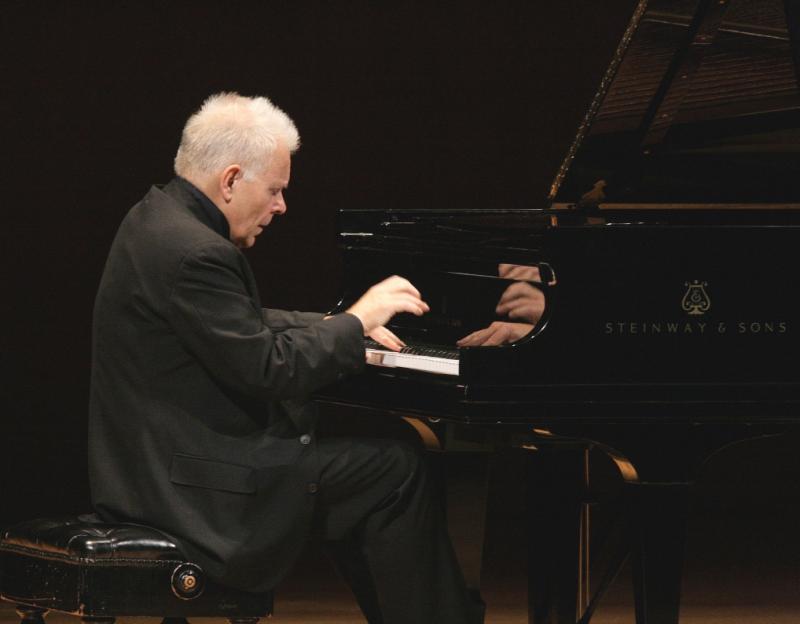An ailing Kovacevich closes Phillips season with mixed results

Stephen Kovacevich performed a recital for the Phillips Collection on Sunday.
Stephen Kovacevich closed out the concert season of the Phillips Collection on Sunday afternoon. The veteran pianist, now 77, was clearly ailing, with a bandage on the back of his neck. Still, he deserves credit for soldiering on with the recital, albeit with a mixed, sometimes tenuous performance.
This recital was the last at the International Student House of Washington DC, as the museum’s renovated Music Room will be ready in the fall.
A Bach partita was the oddest part of Kovacevich’s last recital at the Phillips, in 2017. By contrast this time around, the Prelude and Fugue in C-Sharp Minor, from the first book of The Well-Tempered Clavier, was a highlight. Heavy use of the sustaining pedal made the sixteenth-note section of the fugue muddy, but the phrasing and delineation of the fugue voices were warm and delicate.
Beethoven, typically a strength for the California-born Kovacevich, proved a bit of a trial in the Piano Sonata in E Major, Op. 109. The pianist’s tendency to sing along with himself, in a sustained sort of groan, was most prominent in this piece, even obscuring the poetry of the third movement. More blurry pedaling obscured the melody, impregnated with wistful tone, a memory made hazy by reminiscence.
To get there, however, Kovacevich had to contend, not always successfully, with the more challenging portions of the first and second movements. Kovacevich, seemingly always delighted to take risks, pressed himself on tempos. He did not always get all the details, but the impression left was of a dare accepted.
Fatigue and the venue’s unpleasant heat and humidity appeared to take its toll in the Chopin set concluding the first half. Kovacevich struggled in the Polonaise in E-Flat Major, Op. 26, no. 2, the heroic, sweeping runs up the keyboard approximated. A set of three mazurkas, not specified beyond that in the program, meandered curiously, perhaps too hazy in the pedaling even for Chopin.
The dotted rhythms of the Mazurka in C Major, Op. 7, no. 5, were knotted together awkwardly. In the Mazurka in A Minor, Op. 17, no. 4, Kovacevich created something truly enigmatic, beginning and ending with that scrap of folk tune, like a hurdy-gurdy cranking out a few creaking wisps of sound. The greater technical challenges of the Nocturne in E Major, Op. 62, no. 2, came off in a cloud of imprecision.
Unusually, Caroline Mousset, the director of music at the Phillips, told the audience after intermission that she had tried to talk Kovacevich out of playing the second half. He persisted, offering Schubert’s elegiac Sonata in B-Flat Major, D. 960, in a performance that felt more comfortable in his hands. He struck the right mixture of activity and nostalgia in the memorable main theme of the first movement, troubled by the bass trill motif, submerged in a thick fog of sustaining pedal.
That rueful air hovered over the slow movement, too, where Kovacevich finally lightened his foot on the pedal, revealing the clean contours of soft sound, infinitely varied. The Scherzo was so fast and light that many of the notes barely registered, a playful approach that Kovacevich tried to extend into the finale but could not. In the more loud and brash passages, his control of the music wavered. One can only wish this distinguished musician, who clearly had an off day, good health in the future.


